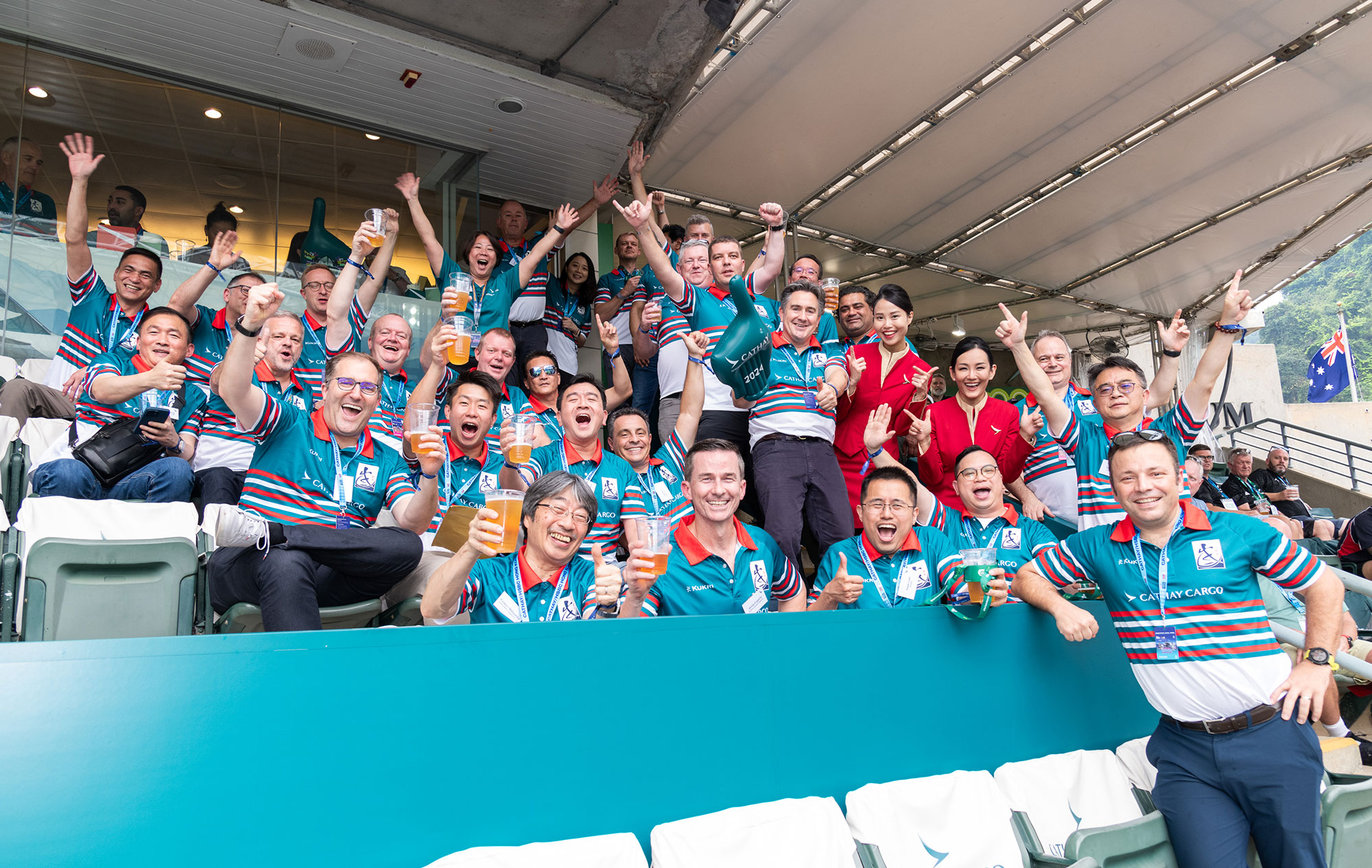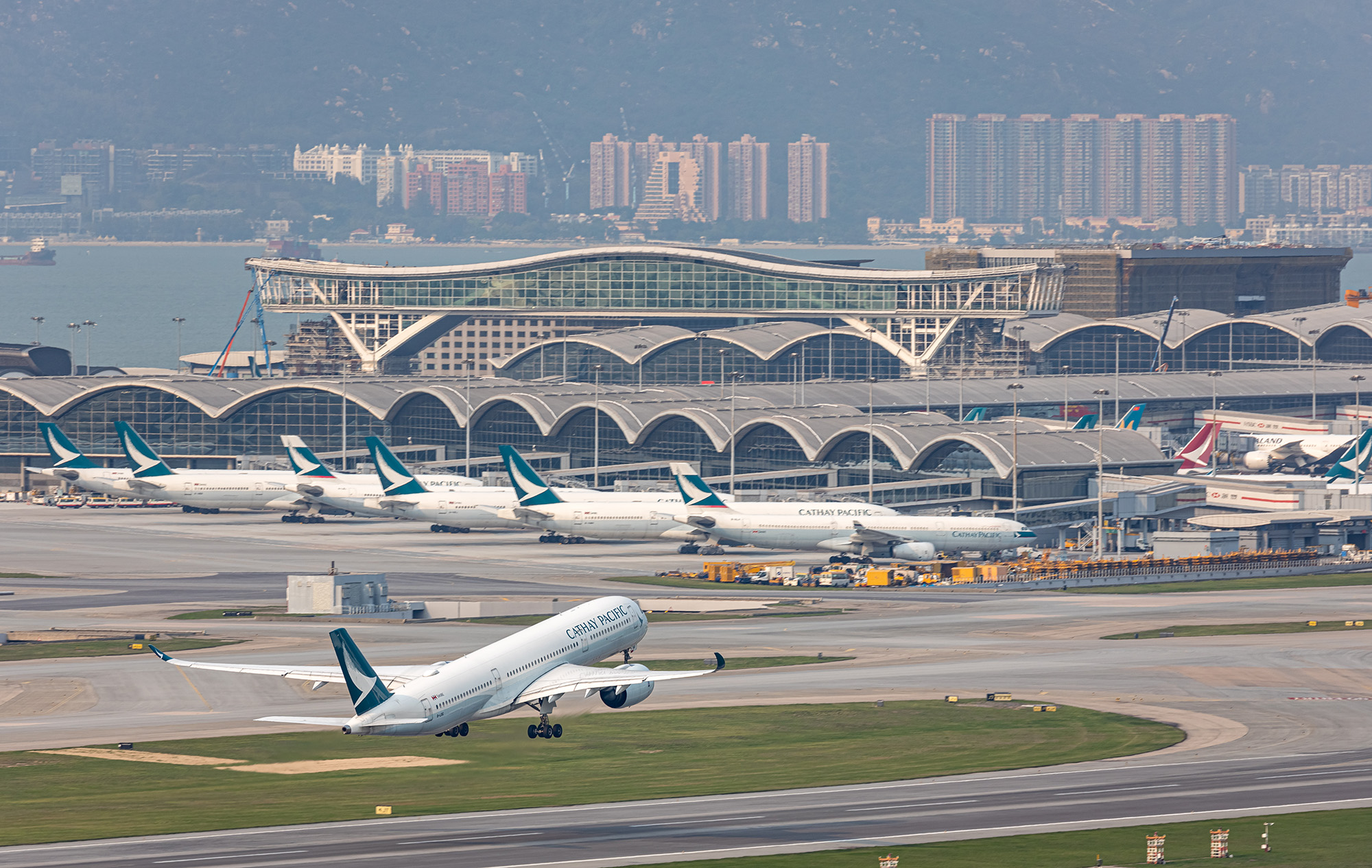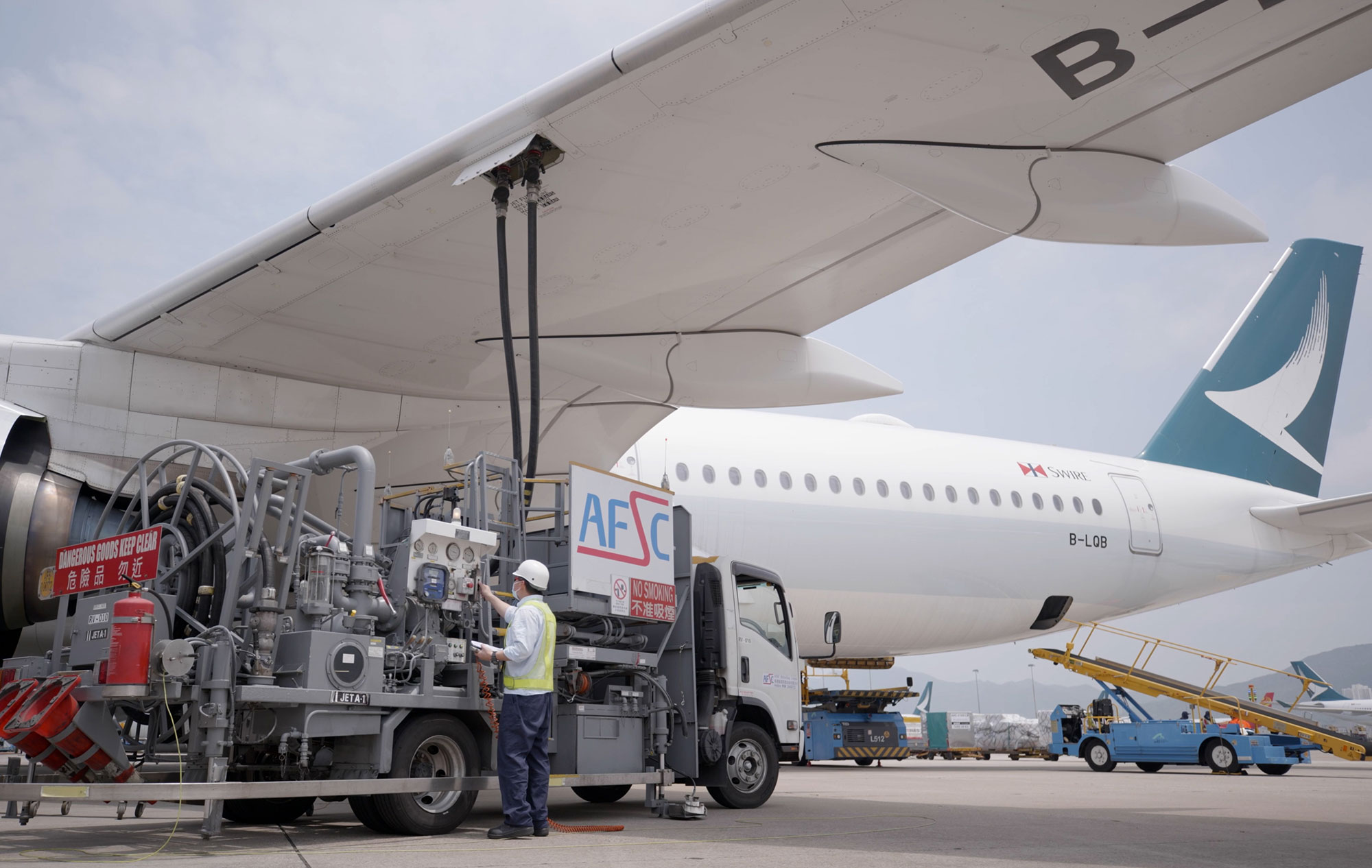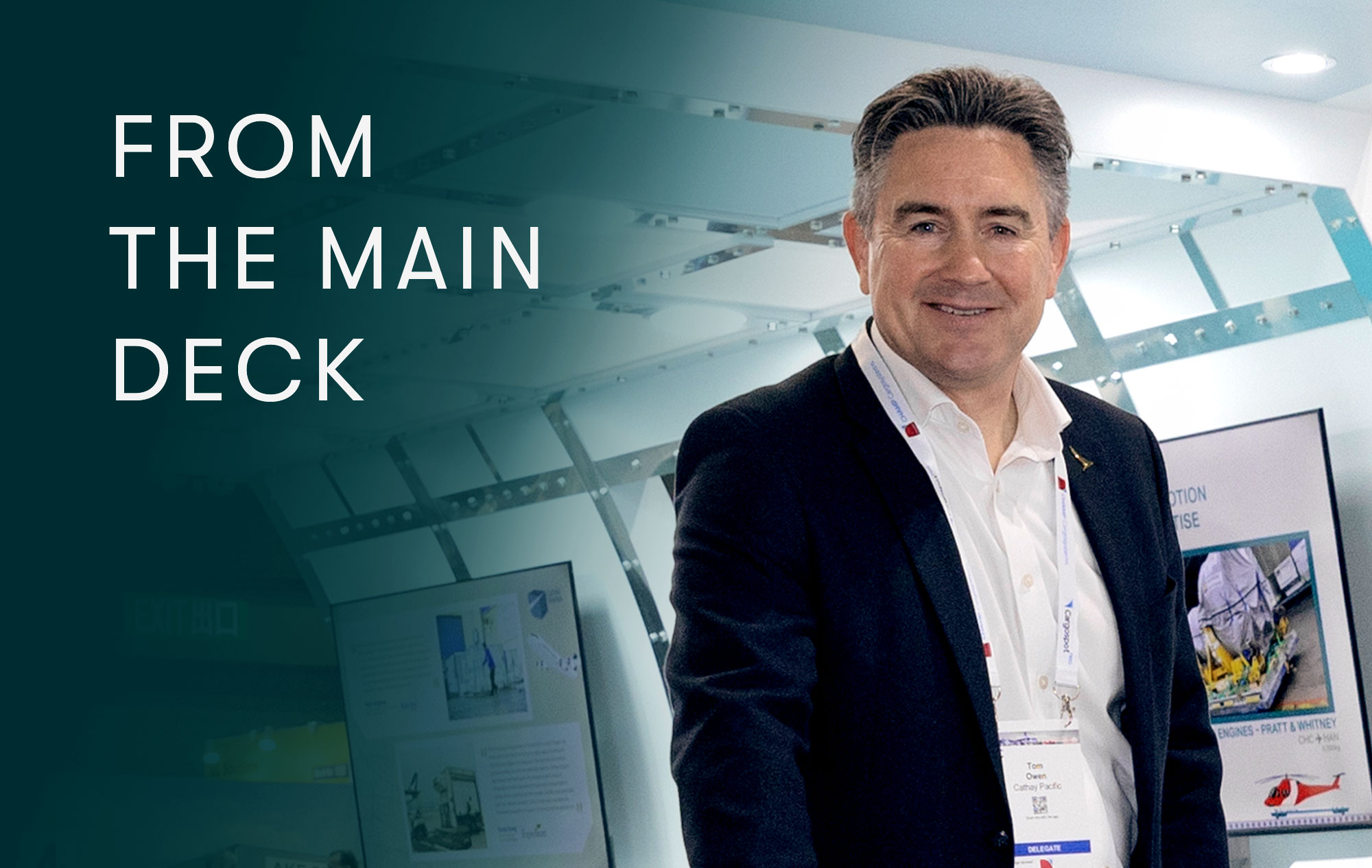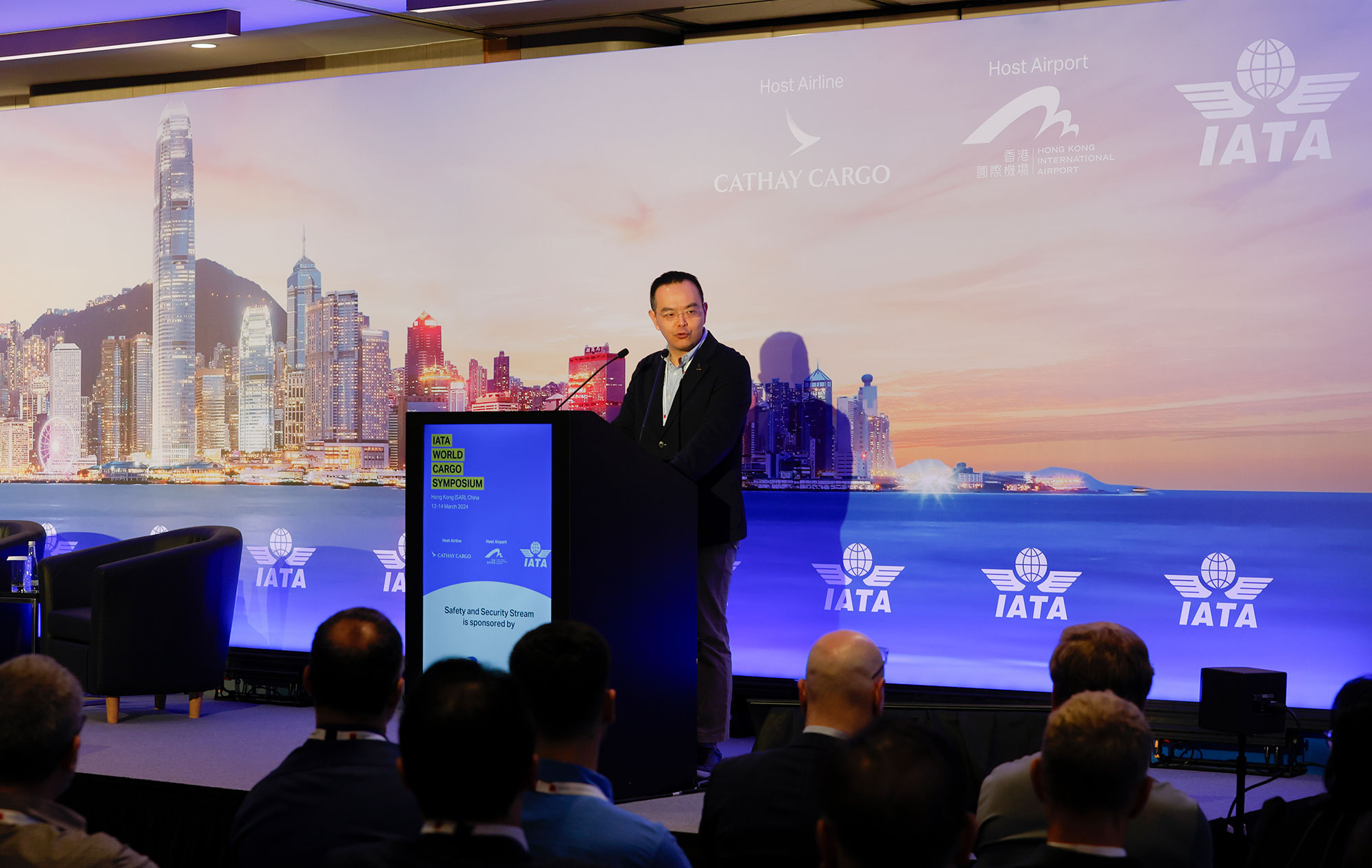If you’re getting ready to set off for the adventure of a lifetime rowing 3,000 miles across the Atlantic Ocean, you need a hardy, fit crew – and you need a boat. But if your boat is stuck in Hong Kong, many thousands of miles from the start line, and the global ocean freight supply chain has ground to a halt – then that presents something of a problem.
This was the dilemma facing an intrepid team of three Hongkongers: Matt Bell, Martin Muller, and Robert Lennox, collectively known as East Rows West. They were committed to the non-stop rowing race known as the Talisker Whisky Atlantic Challenge – and with their training regime almost completed, sponsors secured and charity for their fundraising identified, this was a potential disaster. Had they been unable to get to the start line at La Gomera in the Canary Islands, they would have been defeated before they had even started. Or, as Matt puts it: ‘When you’ve spent almost two years preparing for something, not being able to get to the start line would have been absolutely crushing.’
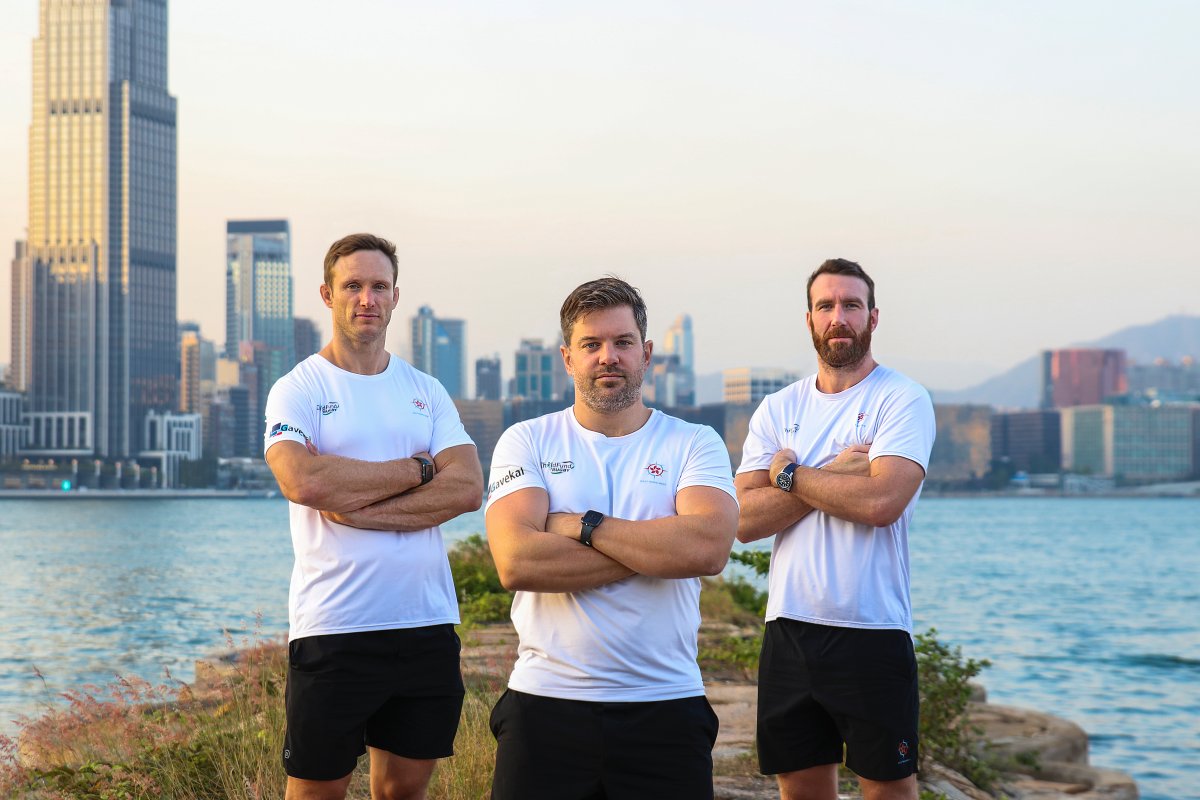
They had already experienced the woes of supply chain issues. Earlier in the year, the team’s boat had been shipped from the UK to Hong Kong, to enable the team to train and get used to their craft. But that had not gone to plan, as Matt explains: ‘What was supposed to be a three-to-four-week voyage ended up taking two-and-a-half months.’
The shipment was delayed as a direct consequence of being held up by the poster girl of the supply chain crisis: the Ever Given, which blocked the Suez Canal for a few weeks back in March. The return leg back to the UK was then jeopardised by the issues that have affected the whole logistics industry. ‘With massive container shortages and ports being blocked, we were in a bit of a bind come August, looking for a way to get our boat to the start line before the start in December,’ says Matt. ‘Everybody was quoting us five times the price it had cost us to ship the boat out from the UK, and no one could give us a guaranteed arrival time.’
While Talisker ocean challenges are longstanding events that provide experiences of a lifetime for participants, they also raise a lot of money for good causes. In this instance East Rows West, who met through their love of rugby, had chosen ChildFund Rugby, a development programme that changes the lives of disadvantaged children around the world through sport. Any fundraising for that was now also in jeopardy.
Fortunately for the team, Cathay Pacific Cargo heard about their plight and offered their sponsorship to get the show back on the road. ‘When we heard about what these guys were doing – and more importantly, why – we just had to help out,’ says Director Cargo Tom Owen.
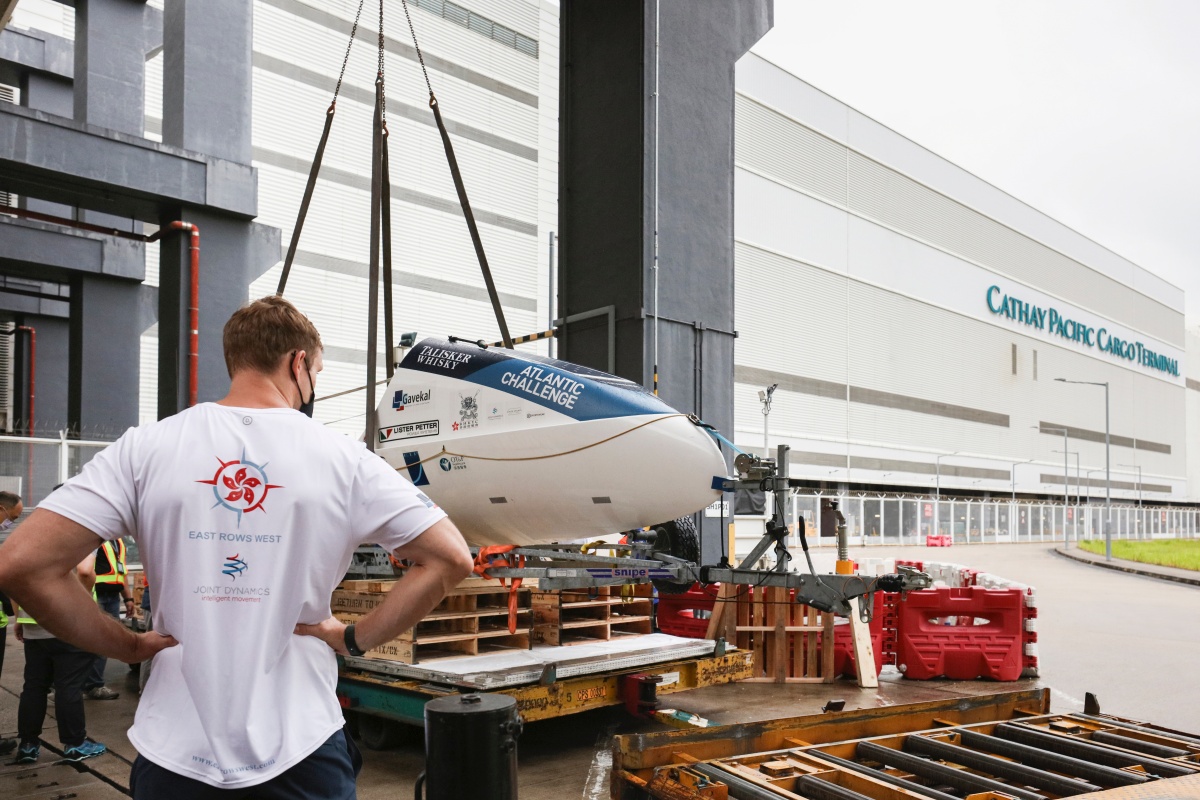
And so East Rows West’s Atlantic challenge became a logistical puzzle for Cathay Pacific Cargo. ‘It was quite a challenge for us because the boat is an unusual size and shape – but for us, every shipment really matters,’ says Tom.
While the boat and its trailer is a lightweight (in cargo terms) 2,300kg, at 8.7m long and two metres across, it is certainly out of gauge for an air shipment – and its fibreglass construction makes it fragile as well as unwieldy.
That’s because ocean rowing requires specialised equipment. These are not ordinary rowing boats, but functional machines that are lightweight enough to be slick through the water, strong enough to survive six-metre waves, but also big enough to cater for three muscle-bound crew and their equipment and supplies for the month or so they will be at sea. That said, there’s not enough room for all the standard home comforts – it comes equipped with a bucket and a rationed supply of toilet paper.
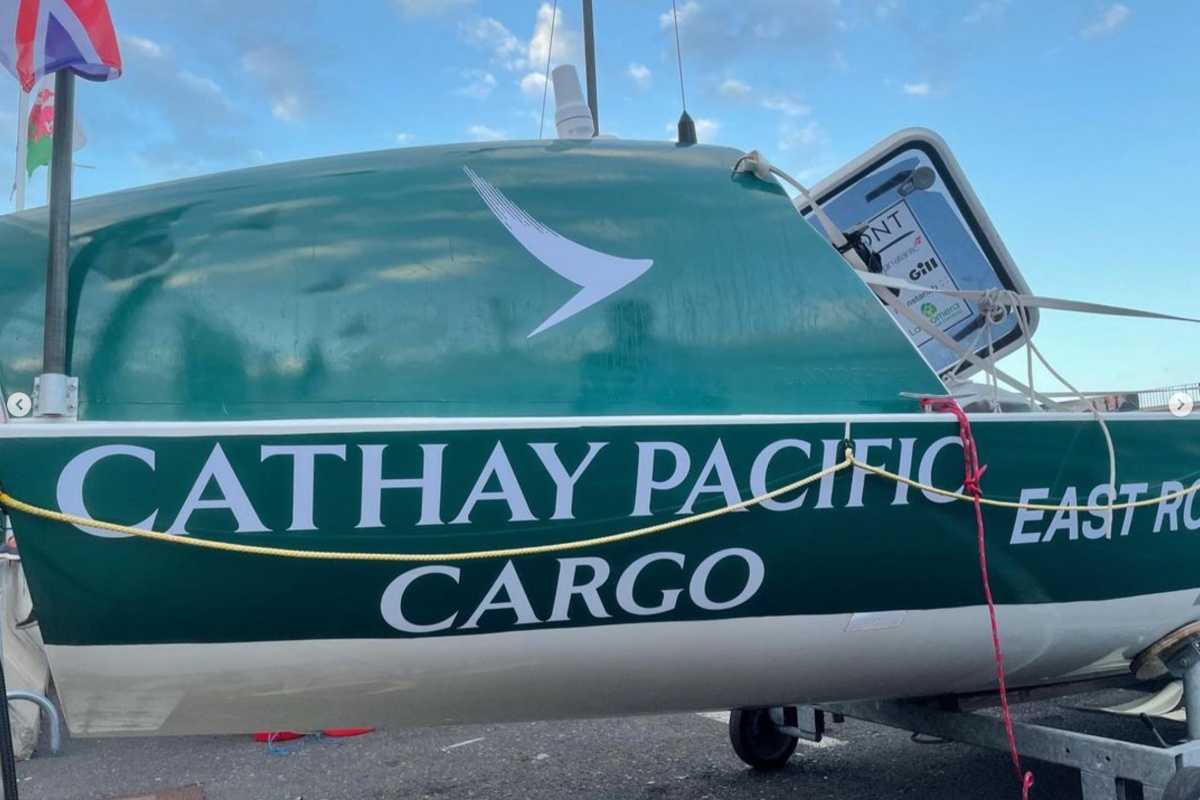
It was the perfect shipment for Cathay Pacific Cargo’s Expert LIFT. This product is well known to forwarders when they need to get outsized, heavy or valuable shipments somewhere fast. From power station turbines to oil drilling rigs to helicopters, Expert LIFT can help.
In this instance, a team of 10 looked after the shipment in the Cathay Pacific Cargo Terminal for loading, securing the boat and trailer to a pallet and ferrying it to the Boeing 747 freighter. There were checks to ensure that the boat’s navigation equipment didn’t interfere with aircraft systems, and to ensure that its lithium-ion batteries were logged on a dangerous goods declaration.
On board the freighter, the boat would take up four main deck positions, so that led to another bespoke process.
‘Because of its size, it was loaded through the nose of the aircraft to make sure there was absolutely no damage, and it was secured safely and securely during its flight with padding and all sorts of other extra measures,’ adds Tom Owen.
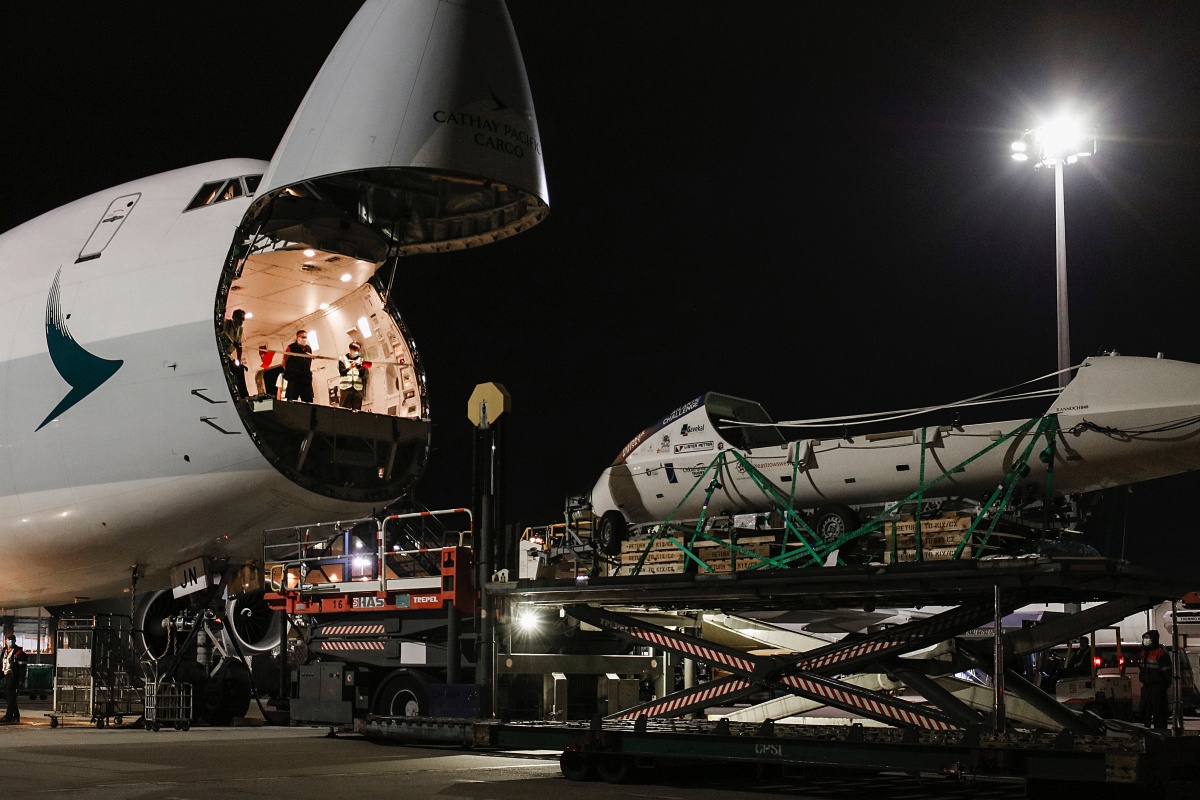
Nose loading is not used that frequently: it provided a great photo opportunity for the team, and a good piece of one-upmanship over their competitors in the race. ‘The photo of the boat going into the nose of the plane was amazing,’ says Matt. ‘It’s done the rounds of the race – everyone is talking about it. Everybody is saying this is the coolest photo that’s ever been taken of this race.’
But ultimately, it wasn’t about the photos. Cathay Pacific Cargo’s intervention meant that the challenge is back on. After landing in London, the team were able to get the boat on a ship to La Gomera and the start line. For East Rows West, the real challenge started on 12 December, with the 3,000-mile crossing to Antigua and Barbuda, and the team is now concentrating on talking it turns to row for two hours, every two hours until they reach the finish line in Antigua.
‘I don’t think we could even comprehend what it would feel like to not be able to participate in this race,’ says Matt. ‘Cathay Pacific Cargo coming on board has been massive for us. With the amount of stress and extra pressure we were facing, it was amazing to have that lifted off our shoulders.’
You can follow East Rows West’s progress across the Atlantic on Instagram.
The Talisker Whisky Atlantic Challenge
Talisker Whisky sponsors two ocean challenges, the Atlantic and the Pacific. The Atlantic event as an organised race dates back to 1997, when it was established by yachtsman Sir Chay Blyth, inspired by his own oar-powered crossing in 1966. This year, the Talisker Whisky Atlantic Challenge endurance challenge features 30 boats in different classes of solo rowers, pairs, trios, foursomes and one five-man crew, setting out from La Gomera in the Canary Islands to Antigua in the Caribbean. They are accompanied by two safety yachts, and teams are tracked by GPS from a dedicated centre. Here are some race facts:
- Each team will row more than 1.5 million oar strokes during the race.
- The fastest row across the Atlantic was the four-man team The Four Oarsmen, who finished in 29 days, 14 hours and 34 minutes.
- The waves that the rowers encounter can be up to six metres high.
- Rowers burn in excess of 5,000 calories per day.
- The event has raised more than €6m (HK$52 million) for charities over the past four races.




